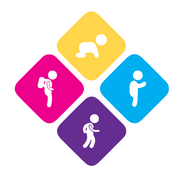5 Warning Signs of an Adolescent Eating Disorder

Affecting nearly three percent of 13- to 18-year-olds, eating disorders are serious illnesses characterized by abnormal eating habits that harm a patient’s mental and physical health. The most common eating disorders include anorexia nervosa, which involves an extreme reduction in food intake, binge eating disorder, which involves frequent binge eating that a person feels little to no control over, and bulimia nervosa, which involves binge eating followed by purging, fasting, or excessive exercise. If your child shows any of the following warning signs, contact your pediatrician.
5 Common Signs of an Eating Disorder
1. Weight Changes
Take note of any fluctuations in your child’s weight. Sudden weight loss could indicate anorexia nervosa, while sudden weight gain could indicate binge eating disorder. Although people with bulimia nervosa sometimes remain at their normal body weight, they may experience weight fluctuations as well.
2. Preoccupation With Weight
Typically, a person with any type of eating disorder obsesses over their appearance. Although many adolescents worry about their looks, persistent complaining about being fat and needing to lose weight could be a sign of an eating disorder.
In addition, affected adolescents may frequently look in the mirror to check for flaws or wear baggy clothes to hide perceived imperfections.
3. Altered Eating Habits
Adolescents who suddenly stop eating with their families, always go to the bathroom after meals, or begin eating smaller portions may be suffering from an eating disorder. Parents should also be concerned if a child becomes preoccupied with counting calories or following a strict diet.
While it’s wise to care about nutrition, completely cutting out certain foods or food groups and labeling foods “good” or “bad” is usually considered disordered eating.
 4. Altered Exercise Habits
4. Altered Exercise Habits
Many people with eating disorders exercise excessively to lose weight. Often, they adopt a strict, ritualistic exercise routine and become agitated when it’s interrupted. Watch for sudden increases in your child’s physical activity level along with frequent discussions of burning calories.
5. Mood Changes
Adolescents often display signs of depression, anxiety, and irritability as an eating disorder progresses. They may lose interest in activities they previously enjoyed and avoid socializing. If you notice these mood changes in your child, contact your pediatrician. Even if they’re not linked to an eating disorder, depression and anxiety require medical attention.
If you believe your child may be suffering from an eating disorder, turn to the compassionate team at Children & Adolescent Clinic PC. Located in Hastings, NE, these pediatricians provide personalized, comprehensive care to patients from infancy to college age. Using advanced care techniques, they treat a variety of mental health conditions, offer guidance on nutrition and physical activity, and provide 24/7 emergency assistance. Visit them online to learn more about their commitment to healthy child development. Call (402) 463-6828 to schedule an appointment.
About the Business
Have a question? Ask the experts!
Send your question

